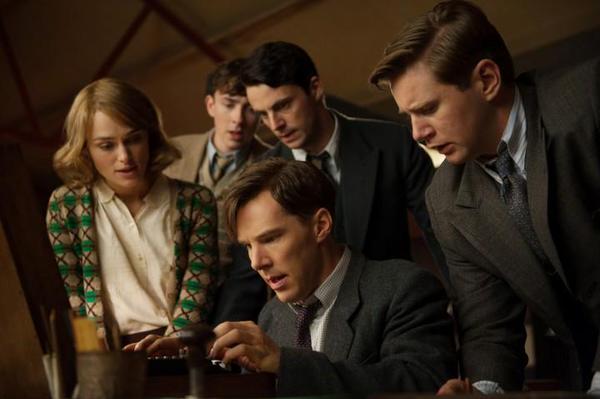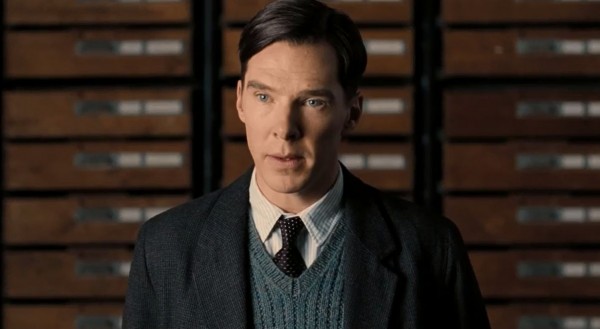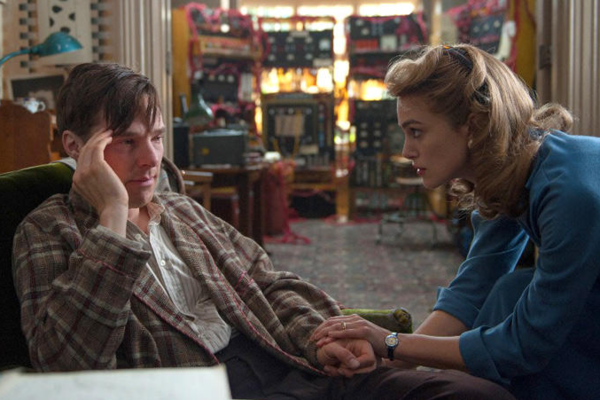The Imitation Game Review
Biopics have become so commonplace today that they often lack the prestige they carried 10-20 years ago. So when one stands out, it deserves an extra bit of recognition and praise, and “The Imitation Game” is one such film, commanded by a fascinating performance from Benedict Cumberbatch.
The “Sherlock” and “Star Trek: Into Darkness” star plays mathematician Alan Turing, the wrongfully disgraced father of the modern day computer and a war hero, the extent of which remained classified until the ’90s. Turing was a total genius and a recluse, whom many theorize may have had some degree of Asperger’s syndrome. However, his reputation was marred most for being a convicted homosexual, as private sexual acts between men were deemed criminal in England until the late ’60s.
Turing shares many traits with the character that shot Cumberbatch to fame, Sherlock Holmes, another savant-like character devoid of social manners who puts work ahead of relationships. The difference, however, is the BBC series employs those quirks for kicks, whereas “The Imitation Game” is a thoughtfully constructed portrait of a deeply misunderstood individual.
Although the film opens with Turing’s arrest in 1951, it uses this to frame the core of the story – Turing’s work for British Intelligence during World War II, when he helped crack the German Enigma code and swing the balance of the war into the Allies’ favor. It also flashes back to Turing’s schoolboy days, which help to explain more of his behavior during his time at Bletchley trying to build a machine to decrypt the Enigma messages.
The beautiful thing about Cumberbatch’s performance is that it’s multi-dimensional – we see Turing’s social struggles, his genius, his unlikable qualities and his tenderness. His performance generates a powerful empathy and understanding of who Turing was and how he struggled through the world and his life. These characteristics live in balance, without any exaggeration. Neither his social “quirks” nor his sexuality define this portrayal, yet they are crucial to it.
Cumberbatch might be the primary focus, but he doesn’t tower over the supporting cast, which includes strong performances from Matthew Goode, Mark Strong, Charles Dance (“Game of Thrones”) and especially Keira Knightley as Joan Clarke, Turing’s closest friend whose intelligence in ways dwarfed his own. Joan could’ve easily been reduced to very little, but Knightley gets good stuff to work with and as always, she brings strength and independence to her character.
Still, the film’s crowning achievement is Cumberbatch’s performance, though much credit for his success in the role belongs to rookie screenwriter Graham Moore, who carefully selects the moments that best encompass Turing’s multi-faceted identity and ultimately help us to understand him. And of course director Morten Tyldum deserves props for really giving Cumberbatch the time and space to thrive.
“The Imitation Game” is also rather impressively paced for a biopic. At two hours long, it rarely drags, nicely interweaving the 1951 arrest story line with the main code-breaking plot and the flashbacks. Perhaps this credit belongs to the fact that Tyldum (“Headhunters”) established himself as a director by making thrillers and editor William Goldenberg (“Argo,” “Zero Dark Thirty”) has made his career on similarly suspenseful films.
The only place “Imitation Game” seems to trip up a bit is thematically. Its notions of humans vs. machines as it relates to Turing are a little bold and don’t quite land the way Moore intends, but the portrayal of Turing has enough emotional resonance to carry the film from simply being very good and missing something to excellent.
4.5/5 Stars
The Imitation Game
Directed by Morten Tyldum
Written by Graham Moore, Andrew Hodges (book)
Starring: Benedict Cumberbatch, Keira Knightley, Matthew Goode







0 Comments
You can be the first one to leave a comment.